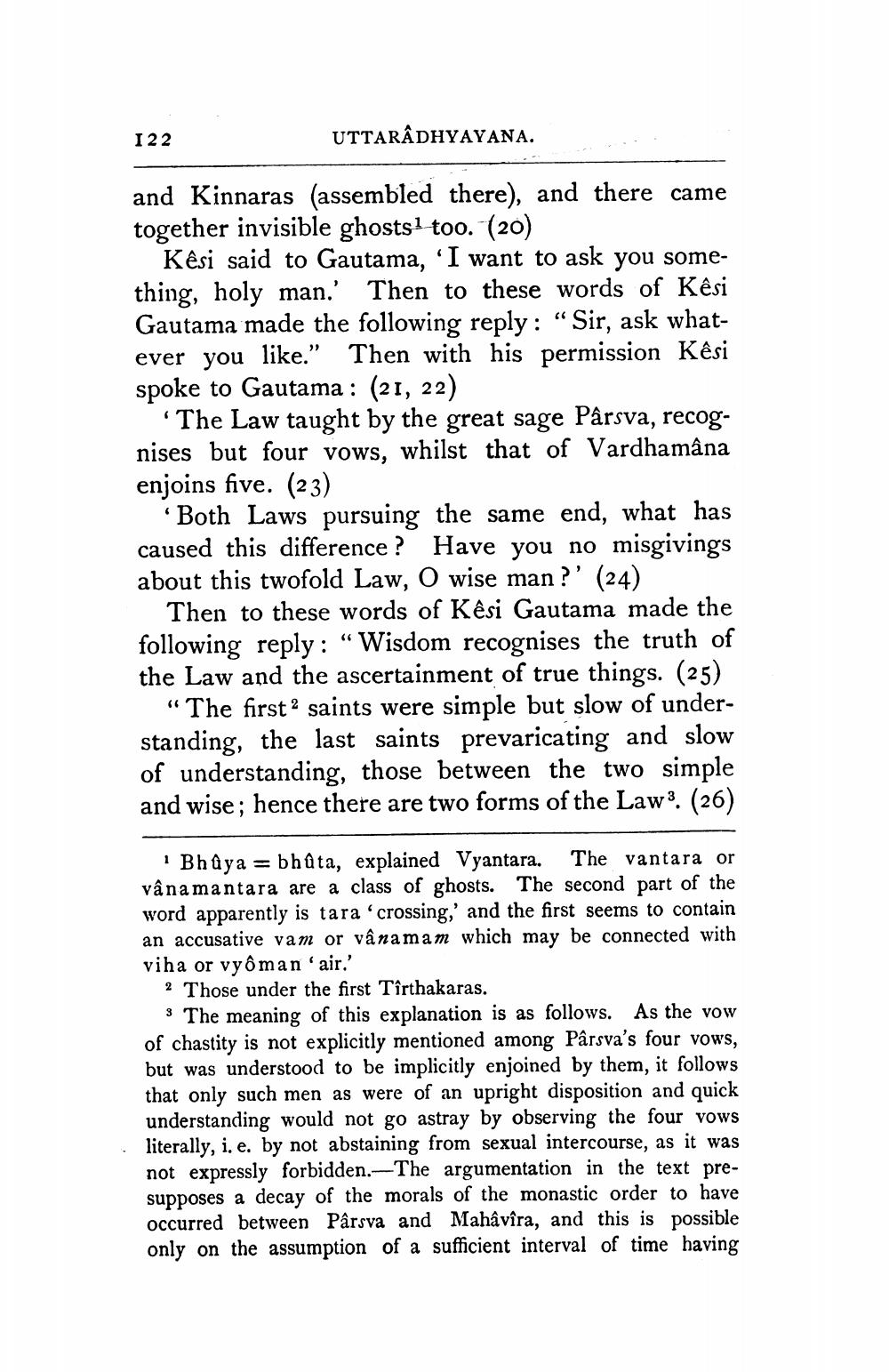________________
122
UTTARADHYAYANA.
and Kinnaras (assembled there), and there came together invisible ghosts? too. (20)
Kêsi said to Gautama, I want to ask you something, holy man.' Then to these words of Kêsi Gautama made the following reply: “Sir, ask whatever you like.” Then with his permission Kêsi spoke to Gautama : (21, 22)
'The Law taught by the great sage Pârsva, recognises but four vows, whilst that of Vardhamâna enjoins five. (23)
Both Laws pursuing the same end, what has caused this difference? Have you no misgivings about this twofold Law, O wise man?' (24)
Then to these words of Kêsi Gautama made the following reply: “Wisdom recognises the truth of the Law and the ascertainment of true things. (25)
“The first? saints were simple but slow of understanding, the last saints prevaricating and slow of understanding, those between the two simple and wise; hence there are two forms of the Law3. (26)
i Bhaya = bhūta, explained Vyantara. The vantara or vânamantara are a class of ghosts. The second part of the word apparently is tara'crossing,' and the first seems to contain an accusative vam or vânamam which may be connected with viha or vyôman air.'
2 Those under the first Tîrthakaras.
3 The meaning of this explanation is as follows. As the vow of chastity is not explicitly mentioned among Pârsva's four vows, but was understood to be implicitly enjoined by them, it follows that only such men as were of an upright disposition and quick understanding would not go astray by observing the four vows literally, i. e. by not abstaining from sexual intercourse, as it was not expressly forbidden.-The argumentation in the text presupposes a decay of the morals of the monastic order to have occurred between Pârsva and Mahâvîra, and this is possible only on the assumption of a sufficient interval of time having




